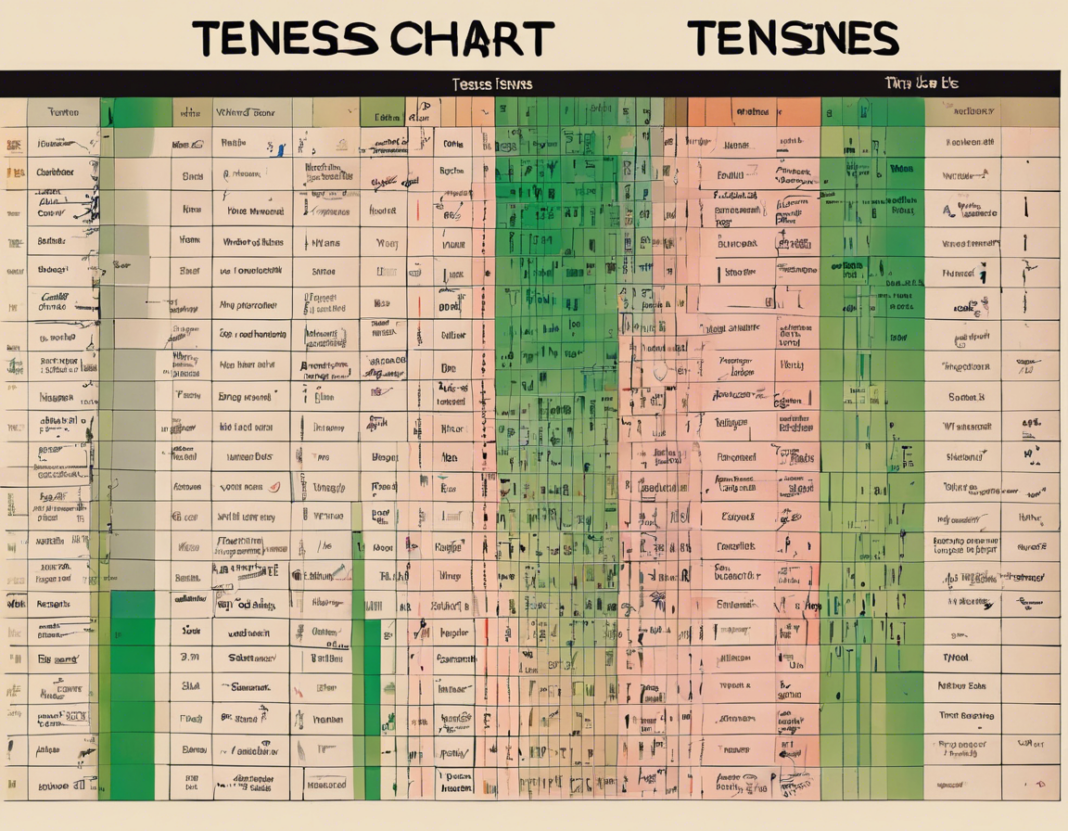English tenses play a crucial role in effective communication as they indicate the time at which an action takes place. Mastering English tenses can be challenging for English learners due to the variety and complexity of tenses available in the English language. In this comprehensive guide, we will delve into the most important English tenses, providing a detailed chart with explanations and examples to help you understand and use them effectively in your writing and speaking.
Simple Tenses
Present Simple
- Usage: Used for habitual actions, general truths, and scheduled future events.
- Form: Subject + base form of the verb
- Example: She reads a book every day.
Past Simple
- Usage: Used for actions that started and finished in the past.
- Form: Subject + past form of the verb
- Example: They visited Paris last summer.
Future Simple
- Usage: Used for actions that will happen in the future.
- Form: Subject + will + base form of the verb
- Example: We will travel to Italy next month.
Continuous Tenses
Present Continuous
- Usage: Used for actions happening at the moment of speaking or future arrangements.
- Form: Subject + to be (am/is/are) + present participle
- Example: He is reading a book now.
Past Continuous
- Usage: Used for actions that were in progress at a specific time in the past.
- Form: Subject + to be (was/were) + present participle
- Example: They were playing basketball when it started raining.
Future Continuous
- Usage: Used for actions that will be in progress at a specific time in the future.
- Form: Subject + will be + present participle
- Example: I will be studying at this time tomorrow.
Perfect Tenses
Present Perfect
- Usage: Used for actions that started in the past and continue into the present or have a present result.
- Form: Subject + have/has + past participle
- Example: She has lived in London for five years.
Past Perfect
- Usage: Used for actions that were completed before a certain point in the past.
- Form: Subject + had + past participle
- Example: By the time we arrived, they had already left.
Future Perfect
- Usage: Used for actions that will be completed before a specific time in the future.
- Form: Subject + will have + past participle
- Example: By next year, she will have graduated.
Perfect Continuous Tenses
Present Perfect Continuous
- Usage: Used for actions that started in the past, continue into the present, and may continue into the future.
- Form: Subject + have/has been + present participle
- Example: They have been waiting for you for over an hour.
Past Perfect Continuous
- Usage: Used for actions that were ongoing before another action or time in the past.
- Form: Subject + had been + present participle
- Example: She had been working there for two years when the company closed.
Future Perfect Continuous
- Usage: Used for actions that will be ongoing before another action or time in the future.
- Form: Subject + will have been + present participle
- Example: By next Friday, I will have been living in this city for ten years.
Frequently Asked Questions (FAQs)
-
Which tense should I use for general truths or facts?
Use the Present Simple tense for general truths or facts. -
How do I differentiate between the Past Simple and the Present Perfect tense?
The Past Simple is used for actions that have finished at a specific time in the past, while the Present Perfect is used for actions that have a connection to the present. -
When should I use the Future Simple tense?
Use the Future Simple tense for actions that will happen in the future without any interruption. -
Can the Present Perfect Continuous tense be used for interrupted actions?
No, the Present Perfect Continuous is used for actions that started in the past and continue into the present. -
How do I form the Past Perfect Continuous tense?
Form the Past Perfect Continuous tense by using had been + present participle. -
Which tense is suitable for actions happening at the moment of speaking?
Use the Present Continuous tense for actions happening at the moment of speaking. -
In what situations should I use the Future Perfect tense?
Use the Future Perfect tense for actions that will be completed before a specific time in the future. -
What is the difference between the Past Continuous and the Past Perfect Continuous tense?
The Past Continuous is used for actions that were in progress at a specific time in the past, while the Past Perfect Continuous is used for actions that were ongoing before another action or time in the past. -
Which tense is appropriate for actions that may continue into the future?
Use the Present Perfect Continuous tense for actions that started in the past, continue into the present, and may continue into the future. -
When should I use the Future Perfect Continuous tense?
Use the Future Perfect Continuous tense for actions that will be ongoing before another action or time in the future.
By understanding and practicing the different English tenses presented in this comprehensive chart, you can enhance your language skills and communicate more effectively in both written and spoken English. Remember to pay attention to the context of your communication to choose the most appropriate tense for each situation.

